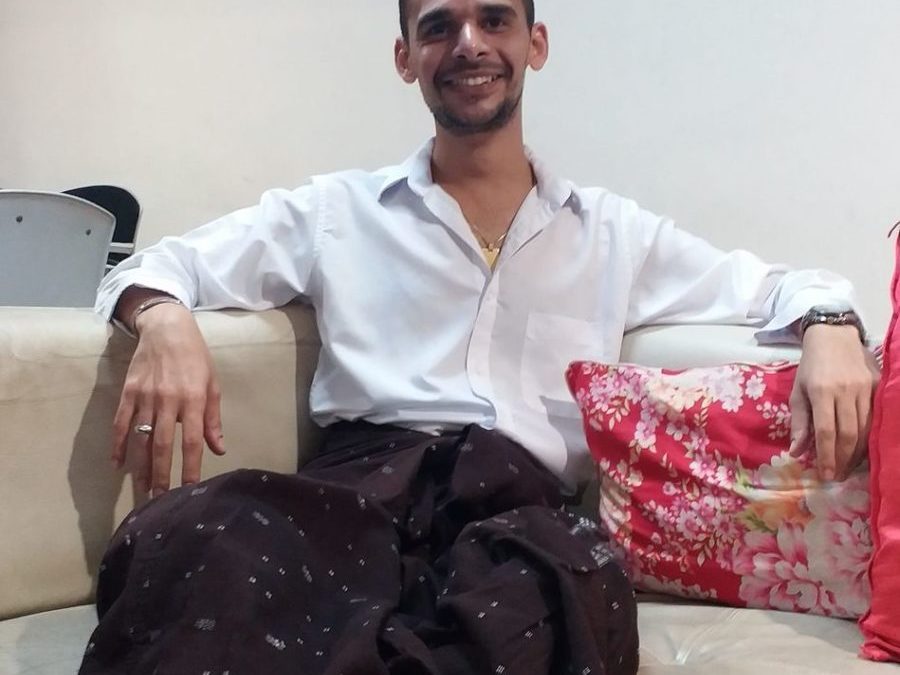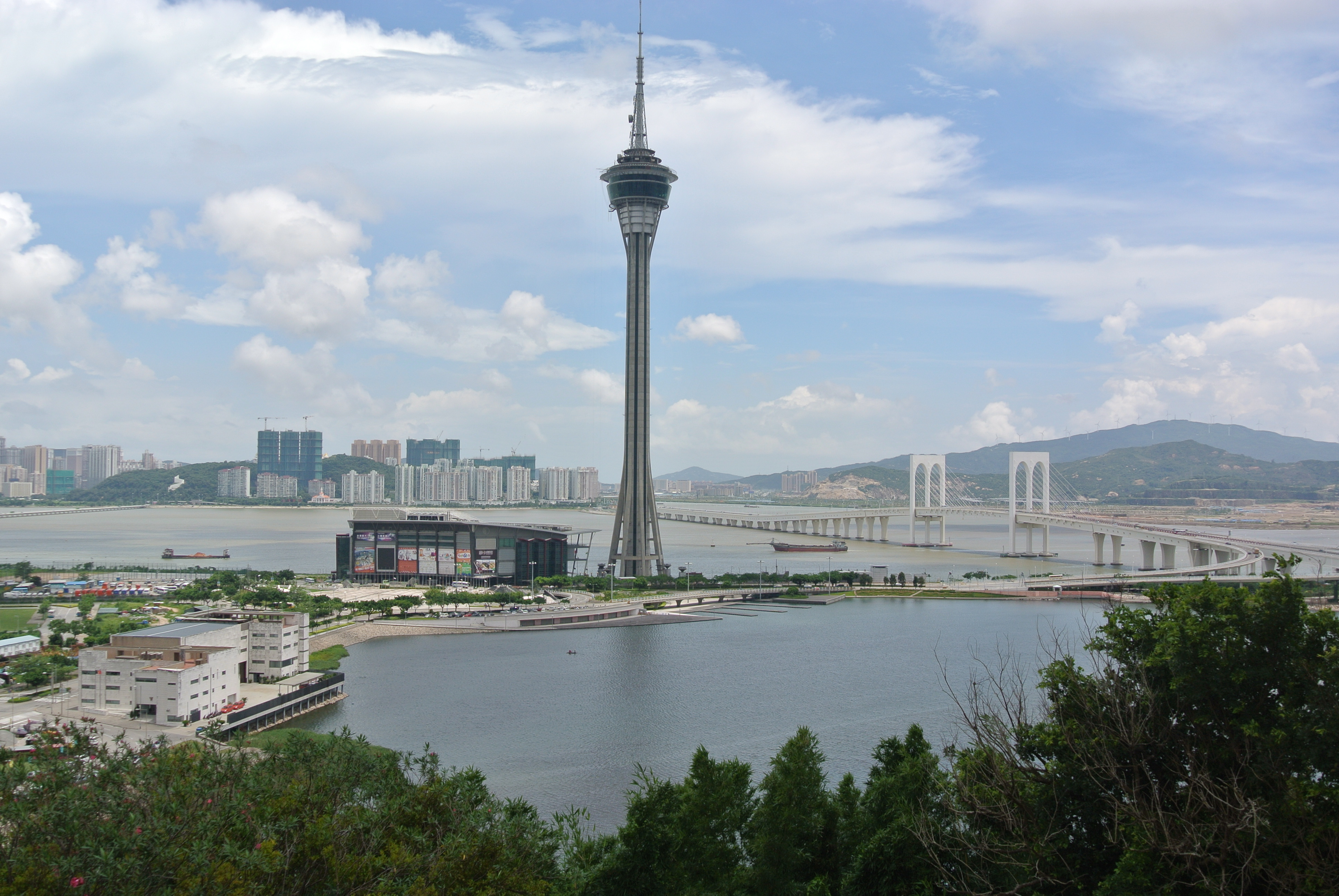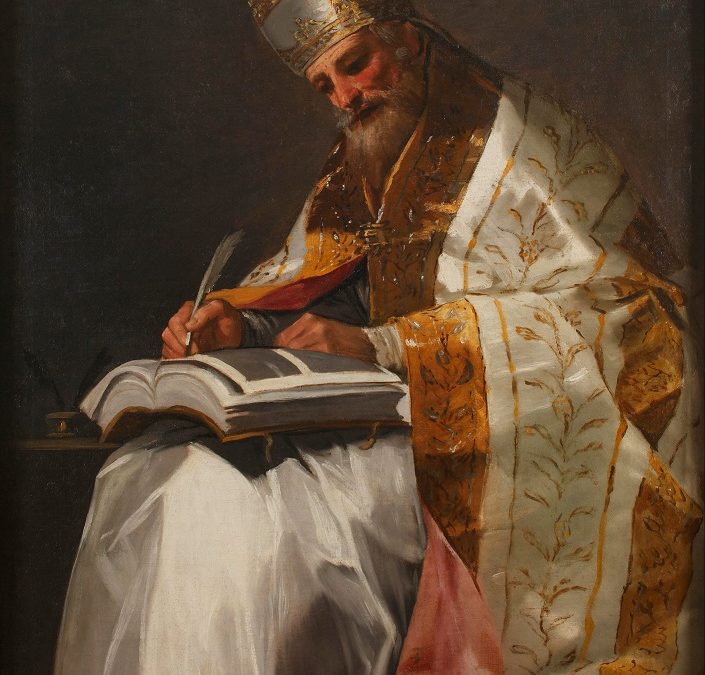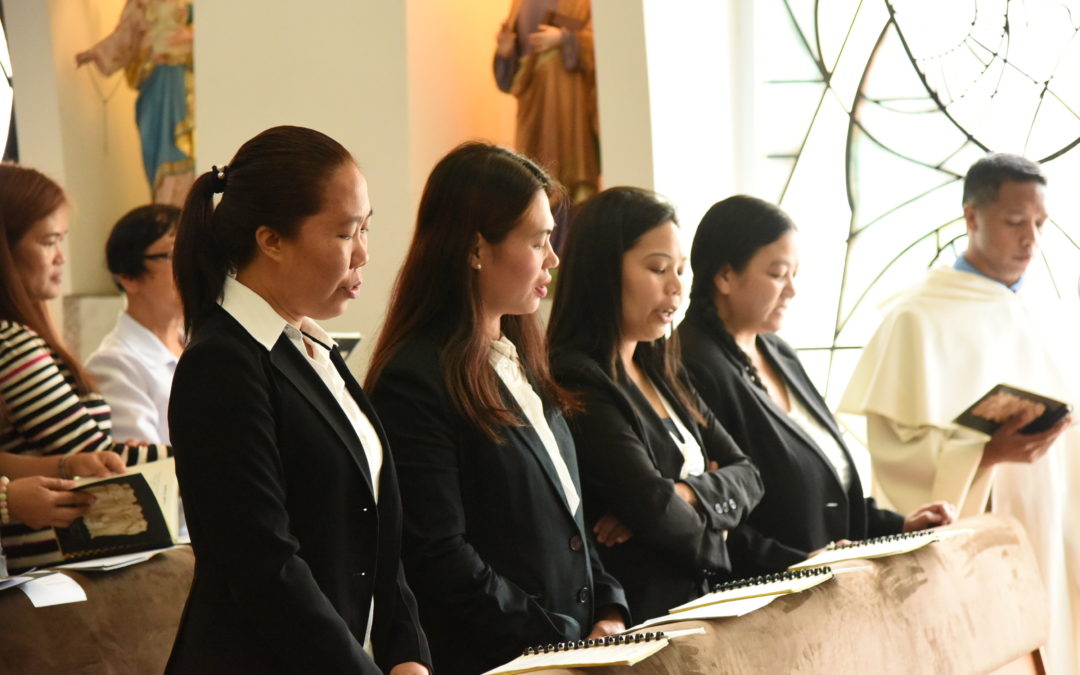The encyclical makes no concessions in asserting the moral responsibility of men who, with their behaviors, influence the environment, pollution, global warming, and, ultimately, how we can prevent all of this. The Holy Father, the Pope, calls on everyone for an ecological conversion. It instigates us to change our route: to strive to safeguard the environment, our common home. And he says that polluting, contributing to global warming, to deforestation, is, at heart, a sin.
When the Roman Pontiff, starting from the second chapter of the encyclical, introduces the aspects of faith, he does so with a very clear preamble: Why insert in this document, addressed to all people of goodwill, a chapter referring to the convictions of faith? I am aware that, in the field of politics and thought, some strongly refute the idea of a Creator, or consider it irrelevant, to the point of relegating to the scope of the irrational the wealth that religions can offer for an integral ecology and for the full development of mankind. Other times, they are supposed to constitute a subculture that should simply be tolerated. However, science and religion, which provide different approaches to reality, can enter into an intense and productive dialogue for both
There are some theological reflections and numerous acts of accusation directed at the powerful and developed nations. I have selected below those that I consider the main points: Preserving the natural world is the best legacy that we can leave for future generations:
Abandoning fossil fuels: Waiting for better solutions (renewable energy) it is better to prefer lesser evil. In the case of energy, the worst of all is fossil coal. We know that technology based on fossil fuels, all very polluting – especially coal, followed by oil and, to a lesser extent, by combustible gases – must be replaced progressively, however, without hesitation. In the expectation of a broad development of renewable energies, which should have already started, it is legitimate to choose the lesser evil or to resort to transitory solutions.
The failure of UN climate meetings: More than 20 years of summits have served little to control global warming. Noteworthy is the weakness of the international political reaction. The submission of politics to technology and finance is demonstrated by the failure of the world vertices on the environment. There are too many private interests and, very easily, the economic interest prevails over the common good and manipulates information.
Emission credits are useless negotiation: The strategy of buying and selling emission credits can result in a new form of speculation and does not serve to reduce the global emission of polluting gases. This system seems to be a quick and easy solution, with the appearance of a certain commitment to the environment, but it does not really imply a radical change in the circumstances.
Far from it, it can become an expedient that allows sustaining the overconsumption of some countries and sectors.
Importance of local initiatives: In some places cooperatives are developed for the exploitation of renewable energies that enable local self-sufficiency and even the sale of surplus production. This simple example indicates that, while the existing world order is powerless to take responsibility, the local authority can make a difference. It is here that greater responsibility can be born, a strong sense of community, a special capacity for good care and more generous creativity, a deep love for the land itself, as well as thinking about what will be left for children and grandchildren. These values have very deep roots in Aboriginal populations.
Transgenics? Neither in favor nor against: It is difficult to pass a general judgment regarding the development of genetically modified organisms (GMOs), plants or animals, for medical or agricultural purposes, as they can be very different from one another and require different considerations. On the other hand, the risks should not always be attributed to the technique itself, but to its inadequate or excessive application. In reality, genetic mutations have been and continue to be produced many times by nature itself. Not even those caused by humans are a modern phenomenon. The domestication of animals, the crossing of species, and other ancient and universally accepted practices can be the object of these considerations. It is worth remembering that the beginning of scientific work on transgenic cereals was the observation of bacteria that naturally and spontaneously produce changes in the genome of a vegetable. However, in nature, these processes have a slow pace, which cannot be compared to the speed imposed by current technological progress, even when such progress is based on multi-century scientific developments.
Consumption is the most serious problem for the world population: blooming demographic growth and not extreme and selective consumerism by some is a way of not facing problems. In this way, the intention is to legitimize the current distributive model, in which a minority believes in the right to consume in a proportion that would be impossible to generalize because the planet could not absorb the waste produced by such consumption.
Cell phones and other devices are ruining our relationship with nature: At the same time, real relationships with others, with all the challenges they imply, tend to be replaced by a type of communication mediated by the internet. This allows selecting or eliminating relationships according to our discretion and, in this way, a new type of artificial emotion is often generated, which has more to do with electronic devices and visual displays than with people and nature. The current means allow us to communicate and to share knowledge and affections. However, sometimes they prevent us from making direct contact with anguish, with fear, with the joy of others, and with the complexity of their personal experience. That is why it should not be surprising that, besides the oppressive supply of these products, a deep and melancholy dissatisfaction in interpersonal relationships, or harmful isolation, is growing.
The legacy for the new generation? Desolation: Catastrophic predictions can no longer be considered with contempt and irony. We will be able to leave for the next generations too many ruins, deserts, and garbage. The rhythms of consumption, waste, and changes in the environment have surpassed the planet’s possibilities, in such a way that the current lifestyle, being unsustainable, can only lead to catastrophes, as in fact, it is already happening periodically in several regions.
Polluting and extinguishing resources is a sin: The environment is a collective asset, the patrimony of all humanity and everyone’s responsibility. Whoever owns a part of it is only to manage it for the benefit of all. If we don’t, we will carry the burden of denying the existence of others in our conscience. That is why the bishops of New Zealand wondered what the command “you shall not kill means when about 20% of the world population consumes resources in order to rob the poor nations and future generations of what they need to survive.
Noise pollution is also reprehensible: to speak of authentic development, it will be necessary to have an integral improvement in the quality of human life, and that implies analyzing the space in which people’s existence is taking place. The environments in which we live influence our way of seeing life, feeling, and acting. In our bedroom, in our home, in our workplace, and in our neighborhood, we must make use of the environment to express our identity. We strive to adapt to the environment, but when it is disordered, chaotic, or saturated with visual and noise pollution, the excess of stimuli tests our attempts to develop an integrated and happy identity.
These are some interesting and controversial points of the encyclical that help us to reflect and take positions and that deserve studies from us to deepen. It is also a challenge for governments and technicians. A great advance in reflection and in taking positions regarding so many important situations for the world of today and tomorrow.
by Bro. Cesar. OP.

Christian Attitudes toward War, Peace, and Revolution
It is a lifetime process to build up peace in the world. The family is at war, the societies also. The human being is losing the common points as race and each day enhancing the range of differences. So God created mankind in his own image, in the image of God he created them; male and female he created them God saw all that he had made, and it was very good. And there was evening, and there was morning ”the sixth day.[1]
The human being has forgotten these words, above all the statement all that he had made, and it was very good; by Creation, humankind has been made good and was given the most beautiful gift: Free Will. Freedom to be fruitful and increase in number; [to] fill the earth and subdue it. [To] Rule over the fish in the sea and the birds in the sky and over every living creature that moves on the ground.[2]
The Pilgrim, referring to Pope Francis in his message Nonviolence as a Style of Politics for Peace(January 1st, 2017), says that violence continues to abound in our hearts and in our world.[3] How far are human beings from that wonderful statement found in Genesis and it was very good? How are human beings understanding and putting into practice the expression fill the earth and subdue it? How is the human being using his/her free will? Here comes the main question: is it possible in the twenty-first century to have a peaceful world or is it simply a utopia, a dream that will never come true and that human beings will be the subjects and the objects of their destruction?
The panorama is as follows we live in a broken worldin a horrifying world where war is fought piecemeal. Pope Francis cries out that there is piecemeal violenceof different kinds and levels: war in different countries and continents; terrorism, organized crime and unforeseen acts of violence; and the devastation of the environment.[4]
In the author opinion, this worldview can change for good. God has given mankind the faculty of reasoning and the gift of freedom; has endowed it with faith, hope, and charity; has put men to take over the whole of creation; has given a law Loves Law to follow as a guideline in every single action; has given men the faculty of re-think on their own acts in order to make amendments; has placed humanity within an environment that provides all the resources needed for nourishment, sheltering, reproduction and amusement. Knowing all this, once again, the author states that the horrifying world described by Pope Francis can become a joyful and fruitful place.
If one asks others which is the origin of violence, for sure the answer will be hatred. Nobody will act violently if in his heart and thoughts love abounds. The second cause may be revenge. A heart that loves and a mind that thinks rationally, know, and trust in justice (earthly and divine): under this principle, there is no space for revenge.
The Catechism of the Catholic Church(CCC) states that By recalling the commandment, You shall not kill, our Lord asked for peace of heart and denounced murderous anger and hatred as immoral.[5] Moreover, Anger is a desire for revenge. To desire vengeance in order to do evil to someone who should be punished is illicit,but it is praiseworthy to impose restitution to correct vices and maintain justice. If anger reaches the point of a deliberate desire to kill or seriously wound a neighbor, it is gravely against charity; it is a mortal sin. The Lord says, Everyone who is angry with his brother shall be liable to judgment.[6]
This article in the Catechism shows an important point in today society: someone who should be punished Who is the one in charge of giving punishment to the one who deserves it? The correct answer is a legitimated governmental entity holding power, and therefore the duty, to render justice to the affected party. Inputting the word governmental in this context, it is necessary to come to realize that the idea of Pope Francis is the most suitable of all: Nonviolence as a Style of Politics for Peace . As long as the entities of justice, throughout the world, be corrupt and misdirected, there will never be justice, and the path towards peace will be tortuous and even unachievable. Peace is the tranquillity of order. Peace is the work of justice[7]
The Compendium of the Social Doctrine of the Churches (CSDC) writes that peace is the fruit of justice, (cf. Is 32:17) understood in the broad sense as the respect for the equilibrium of every dimension of the human person. Peace is threatened when a man is not given all that is due to him as a human person, when his dignity is not respected, and when civil life is not directed to the common good. The defense and promotion of human rights are essential for the building up of a peaceful society and the integral development of individuals, peoples, and nations.[8] To give each one all that is due to him is the definition of justice. If, injustice is one of the threats against peace the first step in the way heading a peaceful world ought to be purified and reorganize all juridical systems worldwide. Once again is a matter of politics.
Linked as well to the political system of the countries in the development of the nation, the welfare of the people, and the harmony within the boundaries and out towards the neighboring countries. Respect for and development of human life requires peace. Peace is not merely the absence of war, and it is not limited to maintaining a balance of powers between adversaries. Peace cannot be attained on earth without safeguarding the goods of persons, free communication among men, respect for the dignity of persons and peoples, and the assiduous practice of fraternity.[9]
How can one understand this balance of power that the Catechism mentions, when only watching the TV news is easy to realize that the power nowadays is not balanced at all? One group, the minority, holding power almost up to the point of absolute power; the other group enduring the situation speechless or silenced by force. The power is twofold: political of course and economical. There are adversary groups, but there are also those who belong to the same group challenging each other to have more and more. Years ago adversaries could be understood as countries in war because of the motive. In these times, adversaries can be, for instance, big companies trying to dominate excessively the market or those who are exploiting the natural resources irresponsibly and even shamelessly.
Once that human beings give up this savage competition, the goods of persons and free communication among men will be safeguarded, and the dignity of persons and peoples will be respected.
Gaudium et Spes (GS) says that In the economic and social realms, too, the dignity and complete vocation of the human person and the welfare of society as a whole is to be respected and promoted. For man is the source, the center, and the purpose of all economic and social life.[10]
Fraternity, friendship, real community life, transparent relationships among human beings that live in a particular environment is only attainable through love. According to CSDC Peace is also the fruit of love. True and lasting peace is more a matter of love than of justice because the function of justice is merely to do away with obstacles to peace: the injury did or the damage caused. Peace itself, however, is an act and results only from love[11] Therefore the first value to be considered in this style of politics must be Love.
The words of Saint Paul are a reminder to all human beings We know that the whole creation has been groaning as in the pains of childbirth right up to the present time. Not only so, but we ourselves, who have the first fruits of the Spirit, groan inwardly as we wait eagerly for our adoption to sonship, the redemption of our bodies.[12] The whole creation is, at this moment, suffering and struggling to achieve means to survive in a more and more challenging historical moment. The earth and its resources are being exhausted, peoples fighting each other to possess such resources. If the style of politics is going to be love, human beings must learn how to love the earth and out of love to distribute the resources available in it.
As the earth is suffering so too the people; this suffering will finish, gradually, when human beings come to realize that a peaceful world is not a utopia but a reality that can be achieved through the effort and collaboration of all.
The way towards a peaceful world is marked in the Sermon on the Mount, the program that Jesus designed for human beings to achieve salvation while enjoying life on earth. The hard sayings of Jesus will be no longer hard because there will not be evildoers, nobody will strike the other cheek, people will be able to share and walk together, there will be no more persecutions and the word enemy may be erased from the dictionary.[13]
Since Jesus, it is possible to be gathered from the diaspora, to join together and to be disciples. The Church way is the way of communities. Even if they are small in comparison to the rest of society they can, through their example effect more in the world than anything else can imagine.[14]
References
Catechism of the Catholic Church.
Compendium of the Social Doctrine of the Church.
Gomez, Fausto OP. Mercy Love and Holiness. Manila, PHL: University of Saint Thomas Publishing House, 2017.
Lohfink, Norbert. Church dreams: The Road from Violence. North Richland Hills, TX: Bibal Press, 2000.
Pastoral Constitution on the Church in the Modern World Gaudium et Spes.
108
[1] Gen 1: 27-31
[2] Gen 1: 28
[3] Fausto Gomez, OP, Mercy Love and Holiness (Manila, PHL: University of Saint Thomas Publishing House, 2017), 155.
[4] Fausto Gomez, OP, Mercy Love and Holiness (Manila, PHL: University of Saint Thomas Publishing House, 2017), 155.
[5] Catechism of the Catholic Church (CCC) 2302.
[6] CCC 2302.
[7] CCC 2304
[8] Compendium of the Social Doctrine of the Church (CSDC) 494
[9] CCC 2304
[10] Pastoral Constitution on the Church in the Modern World Gaudium et Spes (GS) 63
[11] CSDC 494
[12] Rom 8:22-23
[13] Cf. Mt 5:39-44
[14] Norbert Lohfink, Church dreams: The Road from Violence (North Richland Hills, TX: Bibal Press, 2000),
Bro. Reynaldo Chang, OP.

When in September 2011 I received the document through which the Master of the Dominican Order established “The Center of Institutional Studies for the Province of Our Lady of the Rosary in the Convent of St Dominic, Macau in China†I realized that we were writing history. Something extraordinary was there: A Dominican Center of Studies [Studium Generale] in Macau! A dream many of our former missionaries would have longed to hear. We are privileged to witness it and hopefully appreciate its implications.
What is a Center of Studies? A Center of Studies is basically a community of learning and formation. These kinds of Centers enjoy their own personality, and great importance is attached to them in the Dominican tradition. To the point that our legislation states that “each Province shall have its own Center of institutional studies.†(LCO 233 §I)
We, the Province of Our Lady of the Rosary are not an exception: we have always had one; furthermore, even more than one at a given time in history, in different parts of the world, depending on where our House of Studies was. The latest was in Madrid, San Pedro Mártir, which for 50 years fulfilled a splendid mission in the formation of this present generation of missionaries. But today the situation has changed and our provincial Student is here in Macau. And since new situations require new solutions, our Center of Institutional Studies is here in Macau, too.
What is the specific significance of this Centre for our Province? It is a great one for us Dominicans and for the Church:
- In the first place, it addresses our academic needs at this moment in history, bound as we are to provide our numerous students with the required philosophical-theological formation in accordance with the Dominican tradition.
- In the second place, this Centre is called to become a reference point for the Province in this part of the world in fulfilling the important tasks of promoting scientific learning and of keeping us in touch with other academic institutions and with the university world of the region. And
- Finally, this Center has also for us a practical significance, as an internal coordinating platform for the studies of those students of ours who are taking their institutional courses in other nearby places, as well as an important aid in facilitating transcript of records, accreditation of studies, needed documents for visa purposes, etc. The establishment of this Centre is a much-needed institution and quite timely at this point in history.
In closing, I just simply say that if the establishment of this St Dominic Center of Studies is history, our current presence here is history, too.
May our Brother St Thomas Aquinas, known for his holiness and learning, help us to grow in wisdom by his teaching and in holiness by imitating his faith. Amen.
 Fr Javier González, OP

Servus servorum Dei ( The servant of the servant of God)
Saint Gregory the Great was born in Rome, in the year 540. He became mayor of his city; he was detached from his own interests and had a constant renunciation of himself. St. Gregory even sold everything he had to help the poor and the Church.
Saint Benedict strongly influenced Gregori’s life. For this reason, he helped to build many monasteries, also joining the religious life of “Ora et Labora”.
Gregory was someone with a sense of duty and balance. He had an intense interior life and wrote about the pastor’s ideal. In it, the saint affirms that the true shepherd of souls is pure in his thought. He knows how to approach everyone with true charity. He rises above all by contemplating God.
With the death of the pope, St. Gregory was chosen to succeed him in 590, in the transition from the Roman to the medieval world. St. Gregory the Great Pope and doctor of the Church died at the age of 65. One of its main marks is in the Liturgy, with the Gregorian chant. The epistolary and the homilies demonstrate involvement in various activities. Familiarity with the Word of God is evident in the explanations about Ezekiel and the Gospel.
Saint Gregory was a man truly an example for us Dominican as a preacher of the Word of God, and to bring the light of Christ to the People and to the world. Our lives combine both contemplative and active, that’s what makes our lives very unique and more fruitful because we are called the order of preachers our preaching must empower by the Holy Spirit, our motto says; preach what we contemplate, and contemplate what we preach.
Dominican motto is contemplare et contemplata aliis tradere.
St. Gregory the Great, pray for us!
Intercession
St. Gregory the Great intercedes that we may always be shepherded by the Holy Spirit and the word of God so that in Jesus all our thoughts, intentions, and actions begin and end.
St. Gregory the Great was a good shepherd, guided by the Holy Spirit, to lead the Church in difficult times that needed discernment and right decisions. He was a great contemplative, bringing beautiful reflections that taught the way of love to the people of God.
Bro. Cesar OP.




